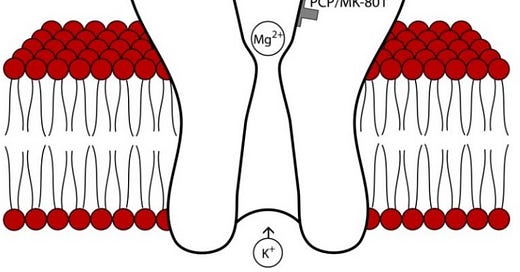Lower excess glutamate: Sleep maxxing (part 3)
Glutamate: The Excitatory Molecule Keeping You Awake, Anxious, and Overstimulated
The Excitatory Molecule That’s Keeping You Wired
Most people think poor sleep comes from not having enough of the right things, like melatonin or GABA.
But there’s another piece to the puzzle:
You might have too much of the wrong thing—glutamate.
Glutamate is your brain’s primary excitatory neurotransmitter. It’s what drives mental activity, focus, learning, memory, and neural speed. It’s essential.
But in excess, it becomes a problem.
Too much glutamate = brain on fire.
You feel overstimulated.
You can’t wind down.
You fall asleep but keep waking up.
And you wake up feeling like your brain never shut off.
This is one of the most common and underdiagnosed reasons people feel wired, restless, and mentally overclocked—even when they’ve already optimized melatonin and sleep hygiene.
In this article, we’ll break down:
What glutamate actually does in your body and brain
Why it builds up and leads to excitotoxicity
The symptoms most people miss
And how to reduce glutamate naturally without numbing your brain
What Glutamate Does — and Why It Becomes a Problem
Glutamate is like caffeine for your neurons.
It helps your brain stay alert, form new memories, respond quickly to inputs, and coordinate muscular contraction.
Without it, your nervous system would be sluggish and dysfunctional.
But glutamate’s power comes with a dark side.
In excess, it creates excitotoxicity—a state where neurons are overstimulated to the point of dysfunction and even damage.
Here’s what happens:
Glutamate binds to NMDA receptors, which flood neurons with calcium
Excess calcium = oxidative stress, inflammation, mitochondrial strain
This promotes insomnia, anxiety, neural aging, and poor recovery
It suppresses GABA sensitivity—your brain’s main inhibitory buffer
And it raises cortisol, noradrenaline, and histamine — all of which keep you wired
When glutamate goes up, your ability to calm down tanks.
The Balance That Matters: Glutamate ↔ GABA
Glutamate and GABA are two sides of the same coin.
Your brain is designed to convert glutamate into GABA through the enzyme glutamate decarboxylase (GAD)—but this only happens when:
You have enough vitamin B6
Your gut is healthy (many bacteria support GABA conversion)
Your GAD enzyme is active and supported
You’re not overly inflamed, stressed, or depleted
If that conversion is impaired, glutamate builds up, and your entire nervous system becomes biased toward excitation.
Symptoms of Glutamate Excess (That Most People Miss)
Excess glutamate doesn’t just mean you’re overstimulated—it means your brain is stuck in high gear and can’t downshift.
You feel alert, but not in a good way. More like anxious, restless, or mentally trapped in overdrive.
Here are the most common signs that glutamate is dominating your nervous system:
Mental and Emotional
Racing thoughts at night
Insomnia, especially trouble staying asleep
Brain fog despite feeling “wired”
Anxiety or emotional hypersensitivity
Overanalyzing, obsessive thoughts
ADHD-like symptoms or poor focus
Irritability and short temper
Mental fatigue after thinking or screen time
Physical
Muscle tension or spasms
Twitching, restlessness, or tremors
Headaches or pressure behind the eyes
Sensitivity to sound or light
Tingling or buzzing sensations
Poor recovery from workouts or stress
Sleep-Specific
Falling asleep but waking up frequently
Waking up too early, can’t fall back asleep
Dreams feel intense, disorganized, or exhausting
No deep sleep or restorative feeling
Feeling hot or restless at night
Bonus Clues
Worsening sleep with high-protein meals (especially glutamate-rich foods like bone broth, collagen, aged cheeses, soy sauce)
Worse symptoms after glutamine, MSG, or aspartame
Sensitivity to stimulants or high dopamine supplements
Feeling better on carbs or sugar late at night (as a coping mechanism)
If these sound familiar, it’s not that you’re anxious, broken, or genetically cursed.
It’s likely that your brain is overloaded with glutamate and under-supported on GABA.
Let’s look at what’s driving that overload.
What Causes Glutamate to Accumulate?
Your body constantly produces glutamate, but it should also be breaking it down or converting it to GABA.
When the system gets overwhelmed or disrupted, glutamate builds up. Here's why:




